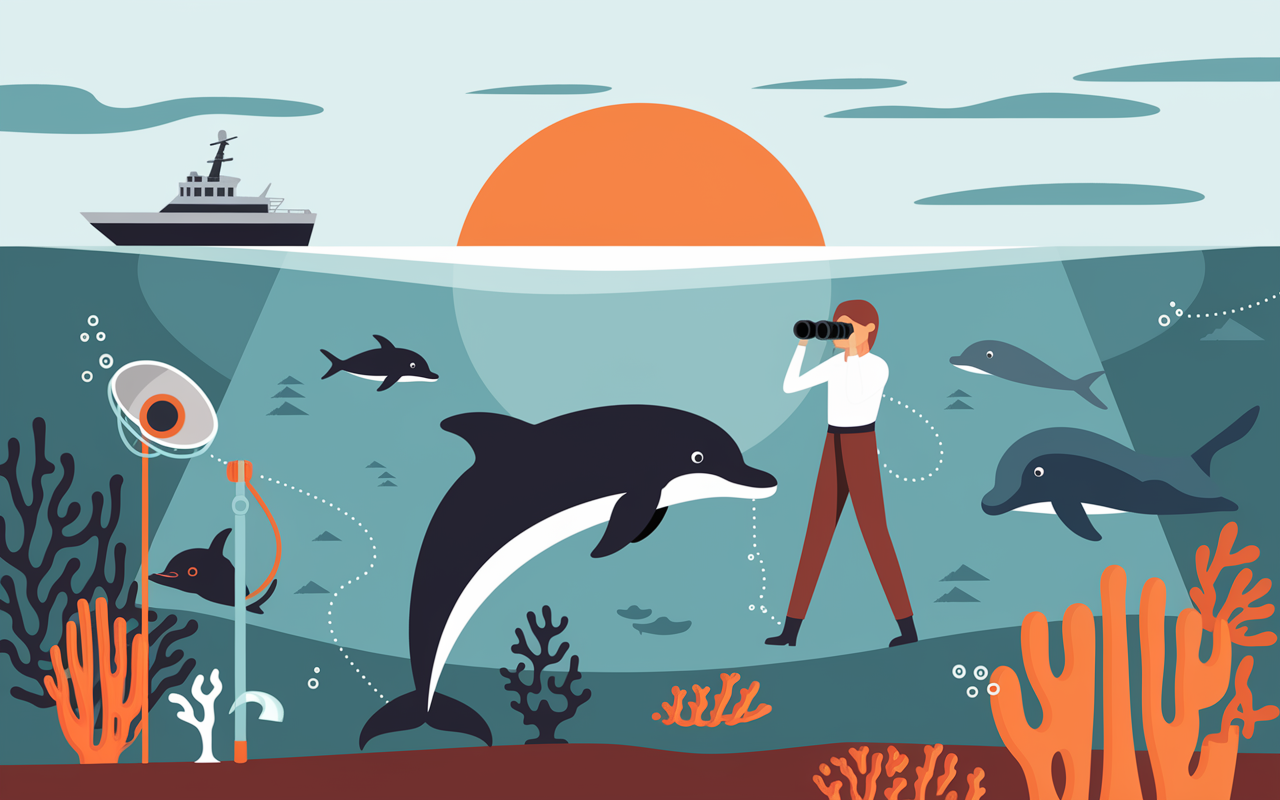Ecological Disaster in the Black Sea
Oil Spill Leads to Mass Dolphin Deaths
As a result of the shipwreck of the tanker "Volgoneft-212" in the Kerch Strait, which occurred on December 15, 2024, during a severe storm, approximately 4,300 tons of fuel oil spilled into the sea. By March 2025, this ecological disaster had led to tragic consequences for the region's marine fauna — the deaths of more than 70 dolphins were recorded, including representatives of three species inhabiting the Black Sea: harbor porpoises, common dolphins, and bottlenose dolphins.
Numerous dead marine animals and birds were discovered on the coasts of Krasnodar Territory and Crimea. Russian President Vladimir Putin instructed the government to create a special working group to coordinate the rescue operation and mitigate the consequences of the spill. A state of emergency was declared in the affected areas, and both specialized services and volunteers were involved in cleaning up the contaminated territories.
Specialists from the "Delfa" center organized a facility to provide long-term assistance to affected dolphins, considering the difficulties of traditional rescue methods in areas contaminated with petroleum products. In parallel, the "Serene Sea" center conducted field trips to examine dolphins washed ashore, including bottlenose dolphins showing signs of old injuries and diseases.
Marine Research at the Forefront of Science
NOAA Conducts Large-Scale Survey of Dolphins in the Atlantic
As part of the Atlantic Protected Species Assessment Program, experts from NOAA (National Oceanic and Atmospheric Administration) conducted a comprehensive survey of dolphin populations from January to February 2025. Using both ship-based and aerial methods, scientists studied various dolphin species, including Risso's, striped, and common dolphins, along the eastern coast of the United States from Massachusetts to North Carolina.
The study, funded by NOAA and the US Navy, included 23 days of shipboard observations covering approximately 2,000 nautical miles and 32 aerial flights covering approximately 3,000 nautical miles. Scientists employed innovative methods, including passive hydroacoustics and specialized camera systems. The data obtained is important for developing conservation strategies and supporting marine biodiversity in accordance with the Marine Mammal Protection Act.
Historical Context and New Discoveries
NASA's Controversial 1960s Experiment Attracts Renewed Attention
In February 2025, public interest was sparked by a historical NASA study from the 1960s, in which researcher Margaret Howe Lovatt attempted to teach a dolphin named Peter human speech. This experiment, initially conceived as a step toward interstellar communication, became known for the unusual closeness between Lovatt and the dolphin.
This historical case raises important questions about the ethical boundaries of scientific research and reminds us of the long journey that the science of communication between humans and dolphins has taken. Modern research relies on more ethical and scientifically sound methods that respect the well-being of the animals being studied.
Public Initiatives and Legislation
Dolphin Awareness Month: Global Campaign for Marine Conservation
March 2025 was declared Dolphin Awareness Month — an annual international initiative aimed at raising awareness about the conservation and protection of these amazing marine mammals. The campaign drew attention to the main threats to dolphins, including sea pollution, illegal hunting, and loss of natural habitat.
In parallel, Canada passed progressive legislation prohibiting the keeping of dolphins in captivity for entertainment purposes. The legislation affects the trade, ownership, capture, and breeding of dolphins and other cetaceans, establishing new standards for ethical interaction between humans and marine mammals.
Keywords:
dolphins, ecological disaster, oil spill, marine research, NOAA, marine conservation, human-dolphin communication, marine mammal protection, animal protection legislation
Sources:
- News Portal 5 — report on the "Volgoneft-212" tanker shipwreck
- Search Database 4 — data on the consequences of the oil spill
- NOAA Fisheries
- The Economic Times
- National Today
- Humane World for Animals
